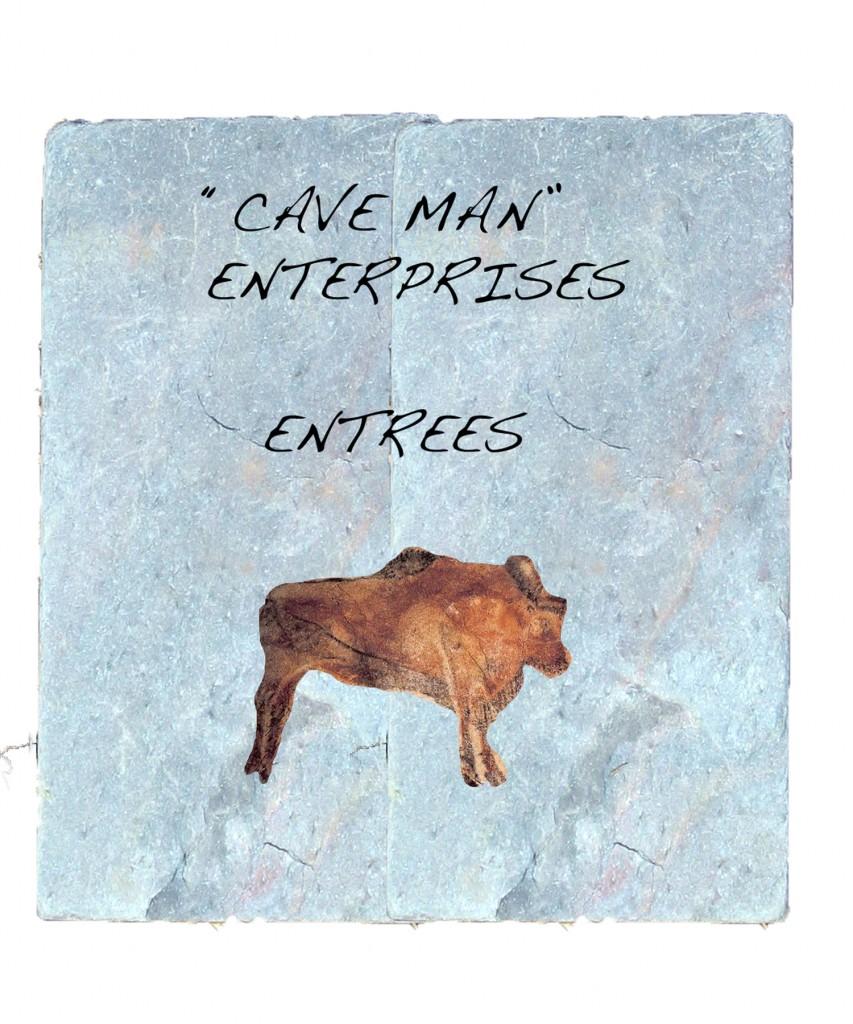The Benefits of Being a Carnivore
Why Your Meatless, “Healthy” Diet is Probably Bad for You
July 9, 2011
Published: April 15, 2011
For my New Year’s resolution, I determined that I would increase my intake of saturated fat in the form of meat and eggs, and I eliminated grains and processed sugars from my diet. This might sound strange, since conventional dietary wisdom teaches us to focus on limiting fat and eating plenty of whole grains. Since making these changes in my diet, I’ve gotten nothing but questions from my friends and family, who think I’m crazy, unhealthy or cruel to animals. My diet goes by many names—paleo, primal, gluten-free, “caveman”—and I stand by my opinion that it’s healthier than the way my wheat- and sugar-eating friends eat.

The first thing people tend to do is agree that it’s good to limit sugar—while insisting that anything is fine in moderation—but then go on to insist that there couldn’t possibly be anything wrong with bread, the staff of life. “Prove it,” they say, with mouths full of cookies.
I begin with the simple fact that wheat didn’t become a significant part of the human diet until about 10,000 years ago, with the dawn of the agricultural revolution. Until then, man survived and thrived on a hunter-gatherer diet. Most of his caloric intake came from protein and fat, and his entire limited carbohydrate intake came from vegetables and the occasional piece of fruit.
The pre-agricultural man ate the way he was made to eat, and was therefore stronger, taller and leaner than his post-agricultural counterpart. Studies of modern pre-agricultural societies demonstrate a lack of heart disease, cancer, diabetes and obesity, suggesting that he was healthier as well.
Though his average life expectancy was not very long, this is largely because a great deal of humans didn’t make it past the age of one year, and many adult humans were debilitated by injuries or life-threatening animal attacks. Humans who were able to avoid injury or unfortunate encounters with bears lived until about the same age that we do, without the help of advanced pharmaceuticals.
It seems that 10,000 years was not enough time for humans to adapt to grains. Not only do grains offer us nothing that we can’t get from strictly pre-agricultural or Paleolithic foods, but they actually hurt us. This is mainly because they don’t want to be digested, as that would impede their survival and spread. In order to discourage animals from eating them, grains are protected by anti-nutrients like lectins, phytates and gluten. Respectively, lectins and phytates have been linked to metabolic syndrome and shown to block absorption of nutrients and minerals (rendering void the supposed benefits of grains). I’m sure you know that gluten has devastating effects on celiacs. You might not know, however, that 29 percent of non-celiacs test positive for an anti-body that demonstrates that their bodies also perceive gluten as a threat.
If my friend has made it this far, he or she will often go on to protest that my new high-fat diet must be wreaking havoc on my blood pressure and cholesterol. After all, we all know that diets high in saturated fat cause heart disease, right? Wrong. There have been somewhere around 30 studies attempting to explore this correlation, and only a couple of them have drawn this widely accepted conclusion. In fact, this popular myth is based almost solely on a study done in 1953 by Ancel Keys, which showed that countries that ate more fat had higher rates of heart disease. Several subsequent studies show that not only is fat not the guilty culprit, but fat is actually good for you. You probably know that LDL is the “bad” cholesterol and HDL is the “good” cholesterol. What you might not know is that there are two types of LDL cholesterol—small, dense LDL (bad) and light, fluffy LDL (benign). Saturated fat intake increases both the light, fluffy LDL and the good-for-you HDL, but doesn’t impact small, dense LDL, which is what correlates to heart disease. In fact, carbohydrates are what increase this dangerous stuff.
Finally, my friend might champion the nobility of a meatless diet, saying that, however healthy my diet might be, we have no right to take the lives of innocent animals. To this challenge, I say that the death of animals is an unfortunate but necessary part of the circle of life, and I agree that livestock should be treated humanely. But it’s important to acknowledge the vast ecosystems that are destroyed by the agriculture business in order to plant those grains that form the foundation of our food pyramid. Do small creatures and bugs deserve to live less than larger ones? While the vegetarian lifestyle is a noble one, it tends to deny the circle of life. No matter what you eat, some creature somewhere had to die for you to eat it.
I urge you to reconsider the way you eat. I support questioning the status quo at all costs, and for me, diet is no exception. With a little effort and time, you will start to see the shortcomings of the low-fat, high-glycemic, processed and refined standard American diet that is sold to you. Why would the government lie to us, you ask? Can you say, “profit?” The U.S. Department of Agriculture stands a lot to gain by telling innocent Americans that grains should form the foundation of their diets. Don’t eat grains. Eat meat.












Kayla Wobschall • Nov 29, 2012 at 12:08 pm
I think being a Vegan sucks! Carnivore get a lot more sex——– better sex
Donna D • Mar 23, 2012 at 7:27 pm
I sure felt a whole lot better when I started eating like a “cave woman”… I don’t think all humans are alike, some of us need animal protein while others seem (key word ‘seem’) to thrive on a vegan diet. I never thought vegans looked healthy. I suspect they only think they are… LOL